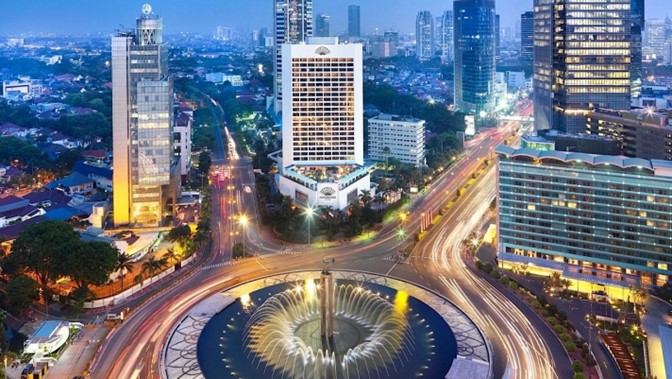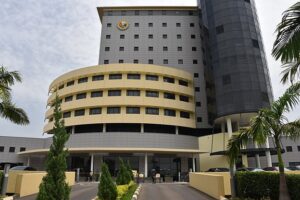Introduction
Know that Africa is a vast and diverse continent, with a population of over 1.3 billion people. It is home to some of the most dynamic and vibrant cities in the world, each with its history, culture, and charm. However, not all cities are equal in terms of size, development, and influence.
That is why you need to read this article, as it explores the top five African cities with the highest population, and what makes them stand out from the rest. Whether you are looking for a place to visit, live, or invest, these cities offer a range of opportunities and challenges for you to consider.
1. Lagos, Nigeria
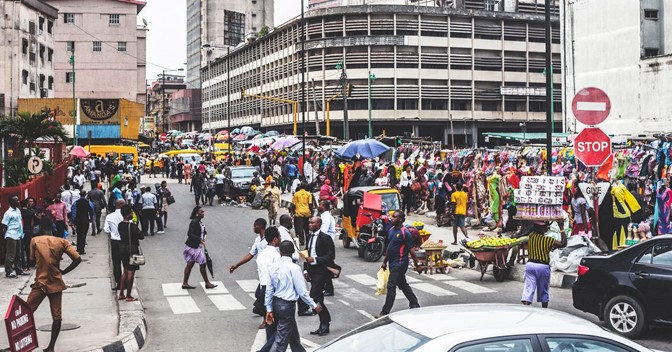
Know that Lagos is the most populous city in Africa and one of the fastest-growing in the world. It is also a major economic and cultural hub, with a diverse and dynamic population. Lagos is a city that never sleeps, and it offers a lot of opportunities and challenges for its residents and visitors.
Pros:
- Has a vibrant and diverse culture, with influences from various ethnic groups, religions, and languages.
- Has a rich history and heritage, and it hosts many festivals, events, and celebrations throughout the year.
- Is a center of innovation and entrepreneurship, with many startups, businesses, and industries operating in the city.
- Has a variety of attractions and entertainment options, such as museums, galleries, parks, beaches, markets, cinemas, clubs, and restaurants.
Cons:
- Suffers from severe traffic congestion, which affects the mobility, productivity, and quality of life of its inhabitants.
- Faces environmental and health issues, such as pollution, flooding, waste management, and disease outbreaks.
- Has a high level of poverty and inequality, which creates social and economic problems for its society.
- Has its location on the Atlantic coast, in the southwestern part of Nigeria.
- Covers an area of about 1,171 square kilometers and consists of two main parts: the mainland and the islands. The city is divided into 20 local government areas, each with its administration.
- Has an estimated population of about 9 million people. However, the actual number may be much higher, as many people live in informal settlements and slums. The city has a population density of about 7,680 people per square kilometer, making it one of the most densely populated cities in the world.
- Is a melting pot of cultures, languages, and religions. The city has over 250 ethnic groups, with the Yoruba being the dominant one. Be aware that the city also has a large number of immigrants and expatriates, from other parts of Nigeria, Africa, and the world. The official language of Lagos is English, but there are many other languages, such as Yoruba, Igbo, Hausa, and Pidgin.
- Is a city of contrasts, where modern and traditional, rich and poor, old and new, coexist.
- Is a city of dreams, where anything is possible. The city attracts many people who come to seek fortune, fame, or freedom. The city also inspires many people who create art, music, literature, and innovation. The city is a symbol of hope and ambition, as its people aspire to achieve their goals and visions.
2. Kinshasa, Democratic Republic of the Congo
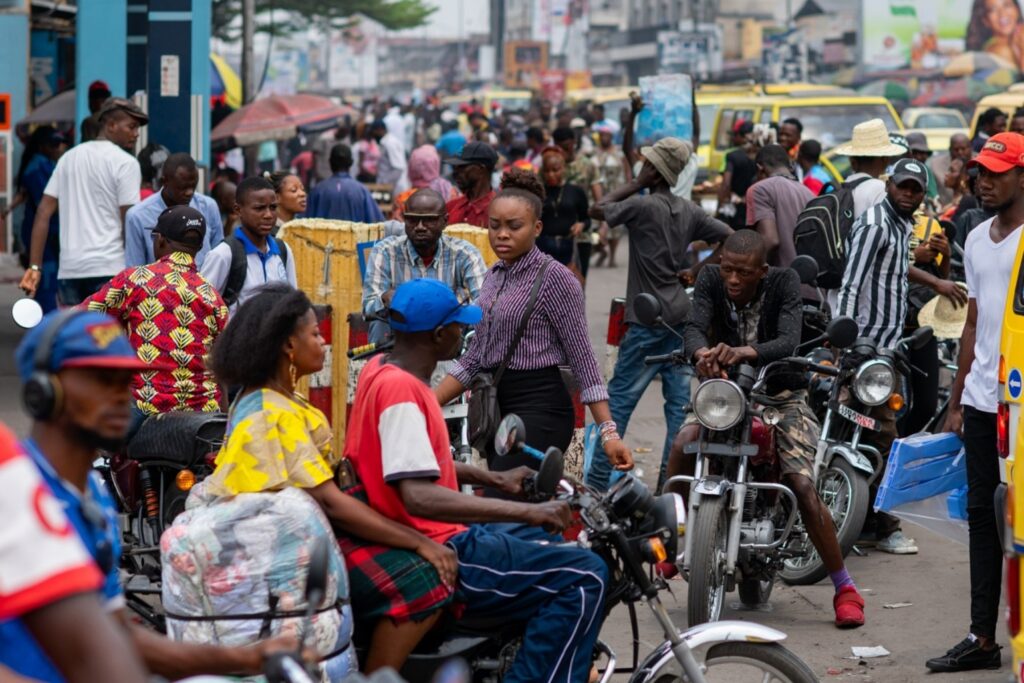
Pick Kinshasa because it is the capital and largest city of the Democratic Republic of the Congo. It is the third-largest urban area in Africa and the largest francophone city in the world. It is also a political, economic, and cultural center of the region.
Pros:
- Has a rich and diverse culture, with influences from various ethnic groups, religions, and languages.
- Is a center of innovation and entrepreneurship, with many startups, businesses, and industries operating in the city.
- Has a variety of attractions and entertainment options, such as parks, zoos, gardens, cinemas, clubs, and restaurants.
Cons:
- Suffers from environmental and social issues, such as pollution, congestion, noise, overcrowding, and poverty. The city also suffers from the deterioration and vandalism of some of its historical and archaeological sites.
- Faces political and security challenges, such as instability, violence, and terrorism. The city has witnessed several protests, clashes, and attacks in recent years, which have affected its stability and safety.
- Faces economic and developmental problems, such as unemployment, inflation, corruption, and inequality.
- Has it its location on the Congo River, opposite Brazzaville, the capital of the Republic of the Congo. It covers an area of about 9,965 square kilometers and comprises 24 communes.
- Has an estimated population of about 7.8 million people. However, the actual number may be much higher, as many people live in informal settlements and slums. Note that the city has a population density of about 780 people per square kilometer, making it one of the most densely populated cities in Africa.
- Is a city of contrasts, where modern and ancient, urban and rural, coexist. The city has a range of architectural styles, from skyscrapers and bridges to pyramids and sphinxes.
3. Cairo, Egypt
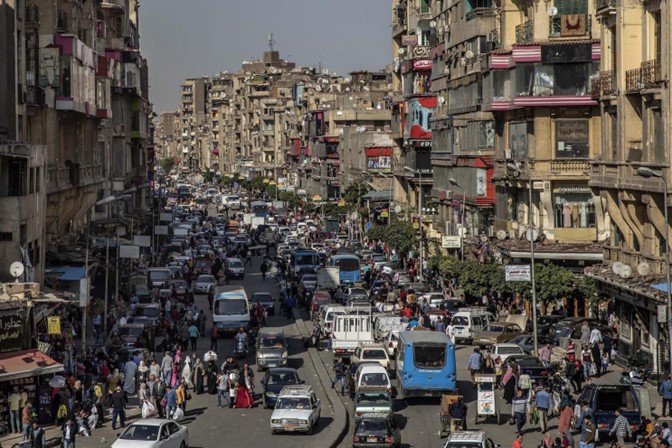
Select Cairo because it is the capital and largest city of Egypt. It is one of the oldest and most historic cities in the world, with a civilization dating back to ancient times. You can also make it your next tourism destination due to its attractions such as the Pyramids of Giza, the Egyptian Museum, and the Khan el-Khalili bazaar.
Pros:
- Is a city of contrasts, where modern and ancient, East and West, coexist. You can get a wealth of cultural, religious, and architectural heritage, as well as a dynamic and diverse society.
- Is a center of education and innovation, with some of the oldest and most prestigious institutions of higher learning in the region, such as Al-Azhar University, Cairo University, and the American University in Cairo.
- Has a variety of attractions and entertainment options, such as museums, galleries, parks, zoos, and cinemas. It has something for you, whether you are looking for history, art, or fun.
Cons:
- Suffers from environmental and health issues, such as pollution, traffic, waste management, and disease outbreaks. The city also has a high rate of crime and insecurity, which poses risks to the safety and well-being of its people.
- Faces political and social issues, such as instability, violence, and conflict. The city has witnessed several protests, revolutions, and coups in recent years, which have affected its stability and peace.
- Faces economic and developmental issues, such as unemployment, poverty, corruption, and inequality.
- Find Cairo on the Nile River, in the northern part of Egypt. It covers an area of about 3,085 square kilometers and consists of 27 districts. Cairo is famous for its landmarks, such as the Citadel, the Al-Azhar Mosque, the Coptic Museum, and the Cairo Opera House.
- Has an estimated population of about 7.7 million people. The city has a population density of about 2,500 people per square kilometer, making it one of the most densely populated cities in Africa.
- Is a city of diversity, with influences from various ethnic groups, religions, and cultures. The city has over 250 ethnic groups, with the Egyptians being the dominant one. The city also has a large number of immigrants and expatriates, from other parts of Egypt, Africa, and the world. Do you know that the official language of Cairo is Arabic? However, there are many other languages, such as English, French, and Nubian.
- Is a city of history, with a rich and diverse heritage, as well as a lively and creative scene. The city is popular for its monuments, such as the Pyramids of Giza, the Sphinx, and the Egyptian Museum, which house some of the most important artifacts of ancient Egypt. The city is also popular for its arts and culture, such as music, literature, cinema, and cuisine.
4. Cape Town, South Africa
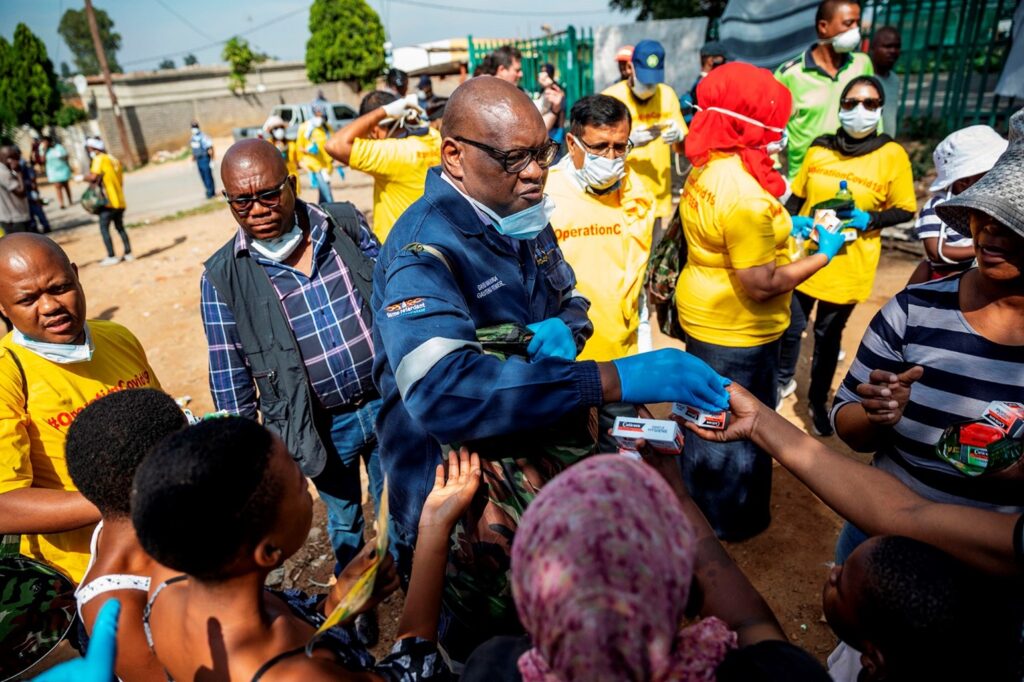
Choose Cape Town because it is the legislative capital of South Africa and the largest city in the Western Cape province. Can you imagine it is also one of the most beautiful and diverse cities in the world, with a stunning natural setting and a multicultural society?
Pros:
- Is a city of nature, with spectacular scenery and a rich biodiversity. It has the Atlantic Ocean all around, and the Table Mountain National Park, which includes the iconic Table Mountain and the Cape of Good Hope. It is also home to some of the best beaches and vineyards in the country.
- Is a city of culture, with a vibrant and diverse society, with influences from various ethnic groups, regions, and countries. It has a cosmopolitan and tolerant atmosphere and a dynamic and creative scene. It hosts many festivals, events, and celebrations throughout the year.
Cons:
- Suffers from environmental and social issues, such as water scarcity, climate change, waste management, and crime. The city also faces the threat of wildfires, which can damage its natural and urban areas.
- Faces political and economic issues, such as corruption, inequality, and unemployment. The city also struggles to cope with the legacy of apartheid, which has left deep scars on its society and infrastructure.
- Is on the southwestern coast of South Africa, at the southern end of the African continent. It covers an area of about 2,461 square kilometers and comprises eight districts. Cape Town is famous for its landmarks, such as the Cape Town City Hall, the Castle of Good Hope, the Bo-Kaap, and the Robben Island.
- Cape Town has an estimated population of about 5 million people.
- Is a city of diversity, with influences from various ethnic groups, regions, and countries. The city has a multicultural and multilingual society, with 11 official languages, including Afrikaans, English, Xhosa, and Zulu.
5. Abidjan, Ivory Coast
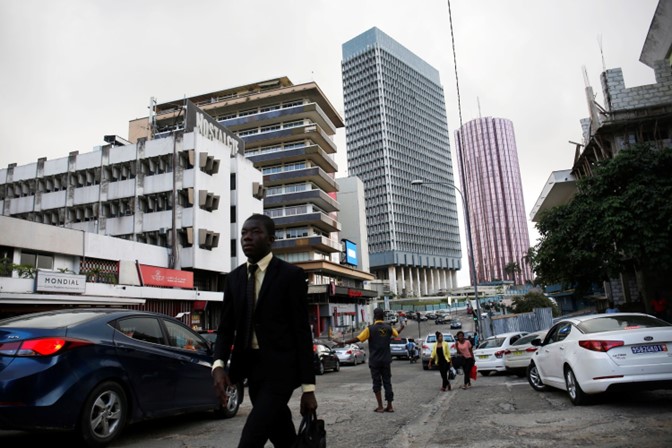
Consider Abidjan because it is the largest city and the economic capital of the Ivory Coast. It is also a cultural crossroads of West Africa, with influences from various ethnic groups, regions, and countries. Abidjan is a city of opportunity and challenge and a leader in the region’s development and integration.
Pros:
- Is a center of innovation and entrepreneurship, with many startups, businesses, and industries operating in the city.
- Has a variety of attractions and entertainment options, such as museums, galleries, parks, beaches, markets, cinemas, clubs, and restaurants. It has something for everyone, whether they are looking for culture, nature, or fun.
- Has a rich and diverse culture, with influences from various ethnic groups, religions, and languages.
Cons:
- Suffers from environmental and health issues, such as pollution, waste management, flooding, and disease outbreaks. The city also has a high rate of crime and insecurity, which poses risks to the safety and well-being of its people.
- Faces political and social issues, such as instability, violence, and conflict. The city has witnessed several coups, civil wars, and crises in recent years, which have affected its stability and peace.
- Faces economic and developmental issues, such as unemployment, poverty, corruption, and inequality. The city also struggles to cope with rapid urbanization and population growth, which have put pressure on its resources and services.
- Is on the Atlantic coast, in the southern part of the Ivory Coast. It covers an area of about 2,119 square kilometers and comprises 10 communes and five new towns. The city is into four main areas: the Plateau, the Cocody, the Treichville, and the Yopougon.
- Has an estimated population of about 6.3 million people. The city has a population density of about 3,000 people per square kilometer.
- Is a city of contrasts, where modern and traditional, rich and poor, old and new, coexist. The city has a range of architectural styles, from skyscrapers and bridges to shanty towns and villages. The city also has a mix of lifestyles, from urban and cosmopolitan, to rural and communal.
- Abidjan is a city of opportunity, where many people come to seek fortune, fame, or freedom. The city attracts many immigrants and expatriates, from other parts of the Ivory Coast, Africa, and the world. The official language of Abidjan is French, but many other languages are spoken, such as Baoulé, Dioula, and English.
Overview of African Cities With Highest Population
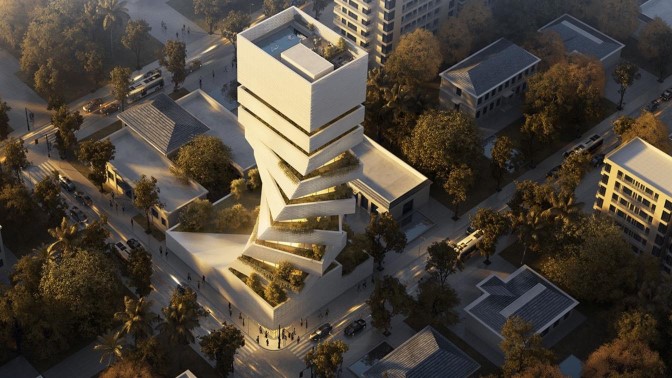
Discover the most populous cities in Africa, where millions of people live, work, and play. These cities are the hubs of culture, economy, and politics in their respective countries and regions. They offer a variety of attractions, opportunities, and challenges for their residents and visitors. Explore the diversity and dynamism of these cities, where different ethnic groups, religions, and languages coexist.
These cities have a rich and varied heritage, as well as a vibrant and creative scene. They host many festivals, events, and celebrations throughout the year. Finally, use this article as an opportunity to learn about the contrasts and complexities of these cities, where modern and ancient, urban and rural, coexist. These cities have a range of architectural styles, from skyscrapers and bridges to pyramids and sphinxes. They also have a mix of lifestyles, from luxurious and modern, to simple and traditional.
How to Choose African Cities With the Highest Population
- Consider the size of the cities which reflects their population density, diversity, and dynamism.
- Evaluate the growth of the cities which indicates their potential, development, and innovation.
- Consider the history of the cities which reveals their heritage, identity, and legacy.
Pros & Cons of African Cities With Highest Population
Pros:
- Enjoy a vibrant and diverse culture, with influences from various ethnic groups, religions, and languages. These cities have a rich history and heritage, and they host many festivals, events, and celebrations throughout the year.
- Benefit from a center of innovation and entrepreneurship, with many startups, businesses, and industries operating in the city.
- Experience a variety of attractions and entertainment options, such as museums, galleries, parks, beaches, markets, cinemas, clubs, and restaurants.
Cons:
- Suffer from environmental and health issues, such as pollution, waste management, flooding, and disease outbreaks.
- Face political and social issues, such as instability, violence, and conflict.
- Struggle with economic and developmental issues, such as unemployment, poverty, corruption, and inequality.
What to Watch Out For
Here are some possible points on what to watch out for in African cities with the highest population:
- Watch out for environmental and health issues, such as pollution, waste management, flooding, and disease outbreaks, that affect the quality of life and well-being of the people.
- Watch out for the political and social issues, such as instability, violence, and conflict, that affect the stability and peace of the cities.
- Watch out for the economic and developmental issues, such as unemployment, poverty, corruption, and inequality, that affect the opportunities and challenges of the cities.
- Watch out for the cultural and historical issues, such as heritage, identity, and legacy, that affect the diversity and dynamism of the cities.
- Watch out for the innovation and creativity issues, such as science, technology, and media, that affect the potential and development of the cities.
Pro Tips
Here are some possible pro tips to follow when choosing African cities with the highest population:
- Define your purpose and preferences. What are you looking for in a city? Do you want to visit, live, or invest? Do you prefer culture, nature, or fun? Do you value size, growth, or history? These questions can help you narrow down your options and find the best fit for you.
- Do your research and compare. Before you make your choice, learn as much as you can about the cities you are interested in. Compare their pros and cons, such as their attractions, opportunities, challenges, and issues.
- Be flexible and open-minded. African cities are diverse and dynamic, and they may surprise you in many ways. Be prepared to adapt and adjust to different situations and cultures. Be respectful and tolerant of the people and their customs.
Recap
Choose your African city wisely, as each one has its own pros and cons, opportunities and challenges, and attractions and issues. Do your research, compare your options, and define your purpose and preferences. Be flexible, open-minded, and adventurous, and enjoy the diversity and dynamism of the most populous cities in Africa.
Choose your African city wisely, as each one has its own pros and cons, opportunities and challenges, and attractions and issues. Do your research, compare your options, and define your purpose and preferences. Be flexible, open-minded, and adventurous, and enjoy the diversity and dynamism of the most populous cities in Africa.


